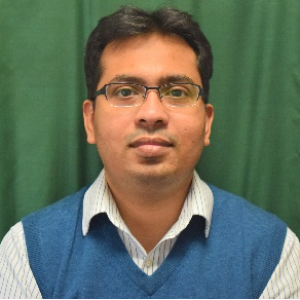Title : Premature atherosclerotic cardiovascular disease In Pakistan
Abstract:
Premature Atherosclerotic cardiovascular disease (ASCVD) represents a growing challenge that needs more attention to be addressed in early adulthood. It correlates highly with dyslipidaemia, male sex, smoking, inflammatory disease, hypertension, and family history of premature ASCVD. It is prudent to identify such adults at an earlier age and devise preventive strategies. We aimed to determine the frequency of premature ASCVD and their modifiable risk factors from primary care clinics in Karachi, Pakistan. A cross-sectional study was conducted from 1st September 2022 to 15th February 2023. The study was conducted at four primary care clinics from different districts. Participants were randomly included if they were aged between 18 to 50 for males or 18 to 60 for females and had at least one of the known risk factors of ASCVD. Pregnant patients were excluded. Data was collected using the WHO ASCVD questionnaire, Patient Health Questionnaire-9, and Short International Physical Activity Questionnaire. All patients who had no records of fasting lipid profile and fasting plasma glucose in the past 6 months underwent testing for the said tests as part of the study. A total of 614 participants were recruited with majority being female 373 (60.7%). Mean age was 41.9 ± 9.2. Majority 513 (83.6%) were classified as obese, with 324 (52.8%) females having a waist circumference of >89 cm. Hypertension was the most prevalent comorbidity 213 (34.7%) followed by dyslipidaemia 210 (34.2%) and diabetes 105 (17.1%). 151 (24.6%) participants were either smokers or had used some form of tobacco. Moderate-Severe depression was seen in 112 (18.2%) while only 47 (7.7%) people were doing moderate-vigorous physical activity. The family history of ASCVD was seen in 136 (22.1%) participants. Premature ASCVD was found in 24 (3.9%) participants with 11 (45.8%) cases of cerebrovascular attack, 10 (41.6%) cases of myocardial infarction and 3 (12.5%) cases of angina. The findings from the study show that premature ASCVD and its risk factors are prevalent in the population and urgent action needs to be taken to control this rising epidemic.
Audience Take Away Notes
- Depending on the audiences which attend the conference, physicians can use the findings from the research to identify patients who are at risk for premature atherosclerotic cardiovascular diseases (ASCVD) and provide them with preventive care. This could include counseling on healthy lifestyle changes, such as eating a healthy diet, exercising regularly, and not smoking. They can use the findings to diagnose and treat patients with ASCVD, and can also use the findings to educate patients about the risk factors for ASCVD and how to reduce their risk. Meanwhile administrative staff can use the findings to develop policies and procedures to reduce the risk of ASCVD in the community. For example, they may use the findings to develop programs to promote healthy eating and physical activity in schools and workplaces.
- This research can be used by other faculty members to expand into their own setup and determine the local prevalence of different risk factors and the incidence of premature ASCVD itself.
- Other benefits
- It can help to raise awareness of the issue of premature ASCVD in lower-middle-income countries.
- It can help to promote research on the prevention and treatment of premature ASCVD in these countries.
- It can help to build relationships between researchers and clinicians working in this area.
- It can provide an opportunity to learn about the latest advances in the prevention and treatment of premature ASCVD.
- It can help to identify areas where further research is needed.
- It can help to raise funds for research on premature ASCVD.
- Presentation could raise awareness of the fact that premature ASCVD is a major problem in lower-middle-income countries. This could lead to more funding for research and prevention programs.
- Presentation could highlight the importance of lifestyle changes in preventing premature ASCVD. This could encourage people to make healthier choices about their diet, exercise, and smoking.
- Presentation could provide new insights into the causes and risk factors for premature ASCVD. This could lead to the development of new treatments and prevention strategies.
- Presentation could help to build relationships between researchers and clinicians working in this area. This could lead to collaborative research projects and the sharing of resources.



